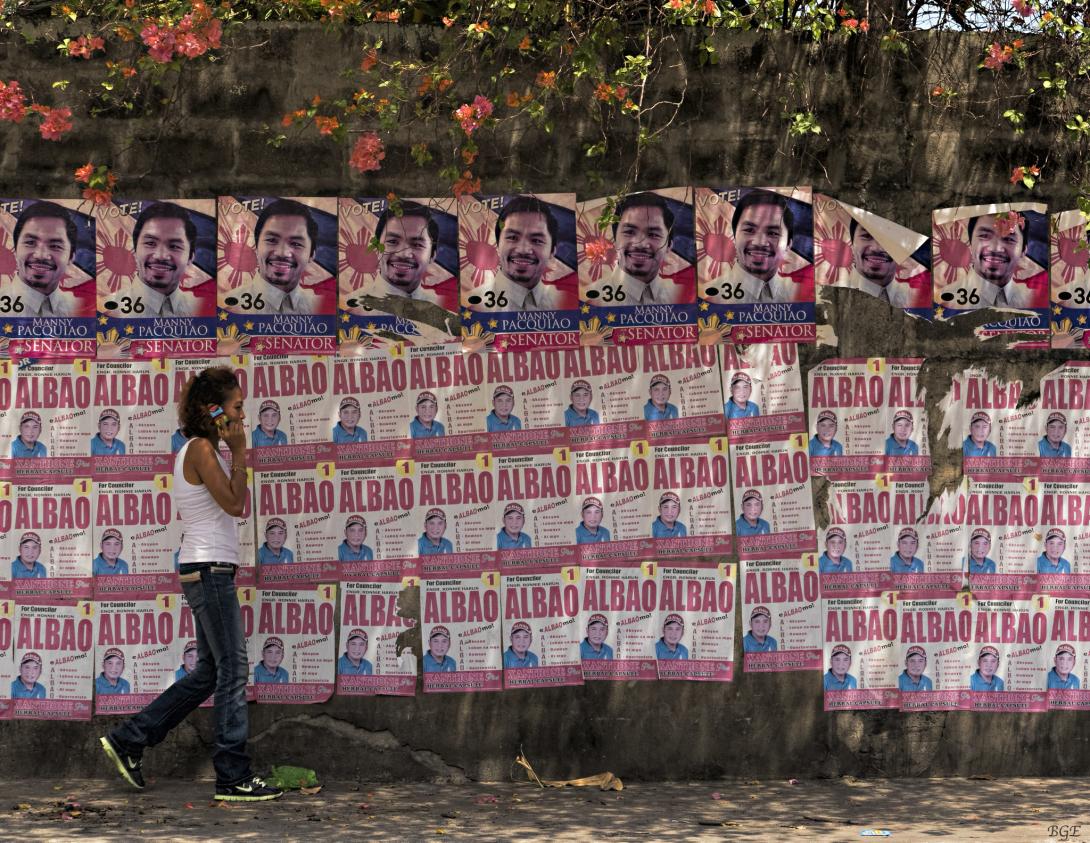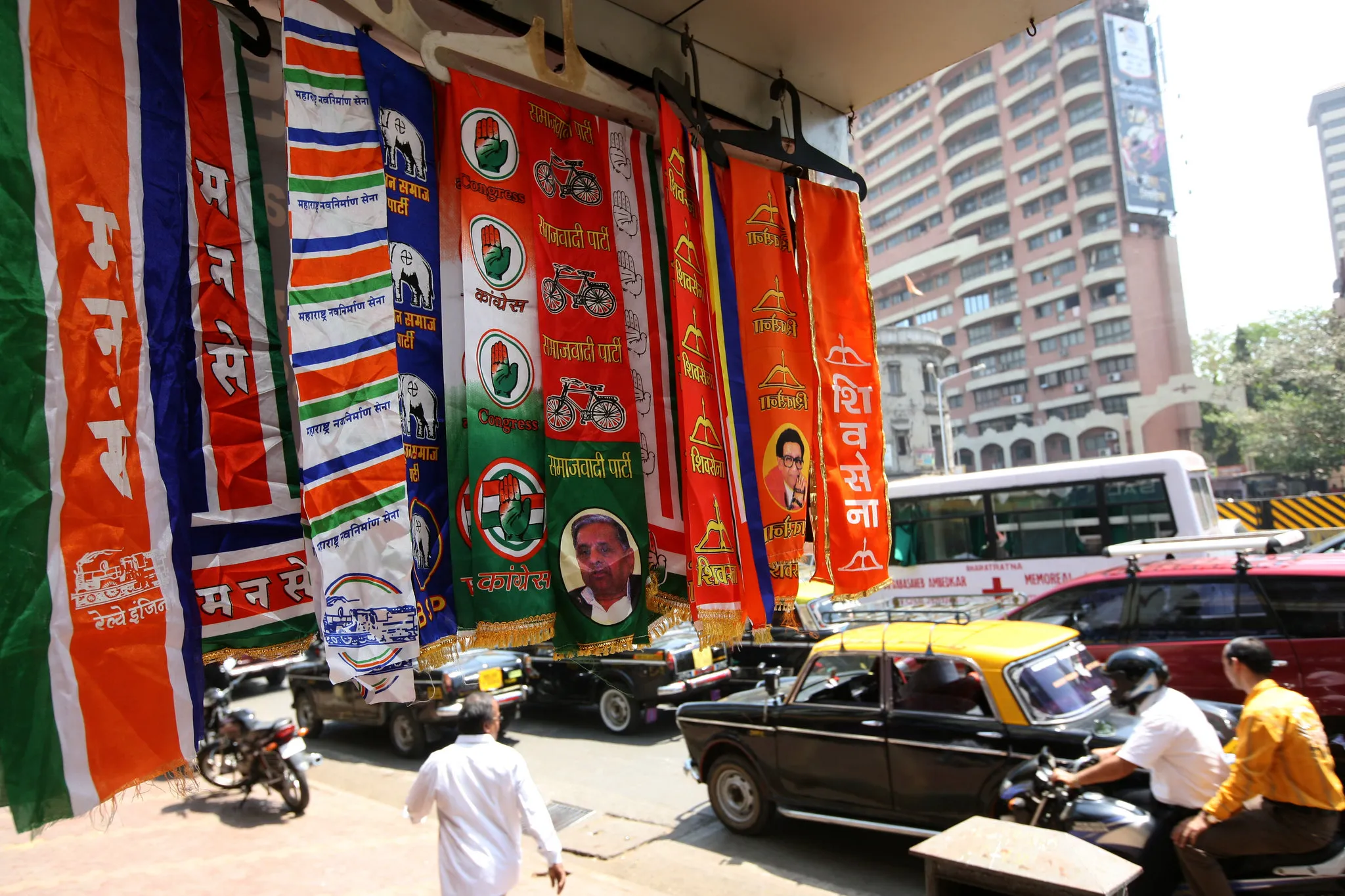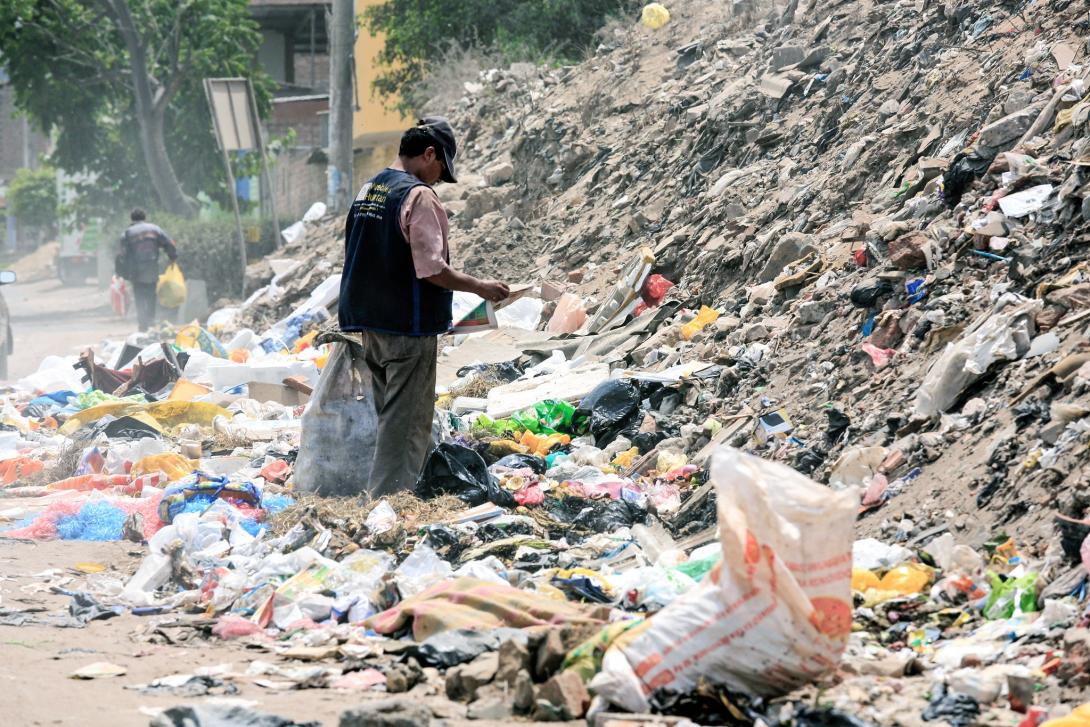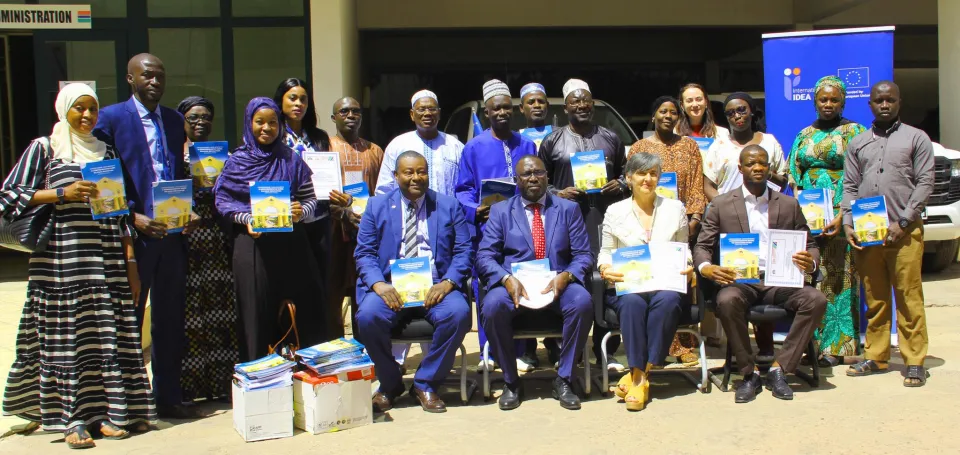
Reducing the environmental impact of elections: Lessons from the Asia-Pacific

While elections are integral to the democratic process of a country, they can also harm the environment. It is often the case that election and campaign materials are produced for a particular election and then, after the ‘event’, disposed of as waste products. For example, during the 2018 general elections in Malaysia, the country generated an additional 18,776 tonnes of waste in one month after the elections were held. Civil Society Organizations in Malaysia have since advocated for stricter policies regarding the use and disposal of campaign materials.
The Intergovernmental Panel on Climate Change (IPCC) synthesis report underlines the need for governments to commit to scaling and speeding up climate action. The report highlights unsustainable patterns of consumption and production as implicated in the rise of greenhouse gas emissions (alongside other factors), and points to sectoral transformation as a critical part of the solution to reduce emissions and restrict global warming. International IDEA notes that the electoral operations and political party campaigns are ripe for such a sectoral transformation.
The Asia Pacific region is home to many countries that are most vulnerable to climate-related extreme weather events and the impacts of sea level rise that pose an existential threat to many small island countries. As such, all countries in the region have made pledges as part of the Paris Agreement. Further, the Asia-Pacific region is home to some of the most experienced and effective election authorities in the world, and is thus uniquely placed for sectoral leadership towards environmentally sustainable electoral processes.
But what can election management bodies (EMBs) and political parties do to reduce their carbon emissions as part of their day-to-day operations, and also during elections? Some innovations can be found in India, the Philippines, Sri Lanka, and Australia during different phases in the electoral cycle.

India
The Election Commission of India (ECI) has introduced a range of green initiatives. The ECI campaign against single-use plastics started in 1999 by urging political parties and candidates to avoid the use of plastic/polythene for posters and banners. Ahead of the 2019 general elections, the ECI directed all political parties to stop using single-use plastics for campaign materials such as posters, banners, etc. For the 2024 national elections, biodegradable and locally produced polling booths have been set up in different states nationwide, some offering voters shade during the heatwave. The importance of offering voters shade has been highlighted by the ECI as an important health and safety measure. While the introduction of electronic voting machines (EVMs) across India back in 2004 was primarily intended to ease counting and prevent ballot stuffing, EVMs are now seen by many as an eco-friendly option that has saved millions of tonnes of paper.
Sri Lanka
Sri Lanka has also shown leadership in the trajectory towards environmentally friendly elections. In 2019 the Sri Lanka Podujana Peramuna (SLPP) political party became the first to succeed in running a carbon-sensitive, environmentally friendly campaign. They achieved this by tracking their carbon emissions from vehicles and electricity used during the campaign, then planted enough trees in each district to offset their environmental impact. In the same year, the Center for Environmental Justice’s (CEJ) Executive Director urged the Commission of Election to prevent pollution during the campaigns and elections. In turn, the former chairperson of the Electoral Commission, Mahinda Deshapriya, encouraged political parties to “lead by example and ensure environmentally friendly campaigns”. Though there was no official legislature regulating the use of plastics in political campaigns, the chairperson suggested that parties use cloth flags instead of plastic tarps as they did in the 1970s. More recently, the Participatory Strategic Plan for 2022-2025 acknowledges the environmental impact of elections, notably the use of environmentally harmful polythene in political signs as a cheap and easily available material. Though the plan mentions a “Green City” plan, it provides no concrete specifications as to what measures will be taken.
The Philippines
Environmental concerns received needed attention during the 2022 general elections in the Philippines. With the risk of COVID outbreaks remaining high, a push towards online campaigning took place. Former Speaker Lord Allan Velasco urged his colleagues in House of Representatives to pursue digital alternatives to traditional campaigning techniques, which often cause mass gatherings, increasing the chance for Covid-19 outbreaks. Further, he highlighted how a shift towards social media and digital campaigning could cut down on paper and plastic waste. Similarly, former Commission on Elections (COMELEC) spokesperson, James Jimenez, championed this sentiment, encouraging candidates to focus on online campaigning instead of door-to-door and rally campaigning to mitigate the spread of Covid-19.
The Department of Environment and Natural Resources (DENR) called on candidates to dispose of their campaign materials following the Republic Act (RA) and Ecological Solid Waste Management Act of 2000. The Ministry encouraged parties to clean up “voluntarily instead of being intimidated by possible violations after the election season” to “show how sincere they are in serving the country”. The DENR also had to remove over 114,000 campaign materials nationwide that were affixed to trees in violation of RA, which protects trees and plants in public spaces. The EcoWaste Coalition requested that the candidates who won take on responsibility for cleaning up campaign materials instead of, for example, indulging in posting more materials to thank voters. Additionally, EcoWaste called on the government to enact stricter regulations relating to the use of cadmium, a carcinogenic colour stabilizer, after high levels of the compound that exceeded the European Union and World Health Organization limit were found in six presidential campaign posters. COMELEC discourages the use of hazardous substances in campaign materials, there remains no official regulation on cadmium. A consortium between EcoWaste, Greenpeace Philippines, Mother Earth Foundation, and Zero Waste Philippines all advocated for the government to take proactive steps to integrate waste and toxic prevention leading up to the May election. Various other organizations took it upon themselves to dispose of campaign materials, namely tarps, in an environmentally conscious way. For example, the Provincial Government Environment and Natural Resources Office (PGENRO) enlisted the Female Dormitory of the Bureau of Jail Management and Penology to create “eco-friendly bags, wallets, pouches, and cell phone cases made of ‘upcycled’ election campaign materials”. Similarly, in response to the rampant use of tarps, a youth group created Project Tarpunla, which turns the tarpaulins into bags and plant boxes, which were distributed for free at local wet markets.
Australia
In 2020, the Australian Election Commission replaced ‘wrapped’ cardboard with AEC branding with plain ‘raw’ brown cardboard for queuing equipment, ballot paper issuing tables, voting screens, ballot boxes and recycling bins. This generic branding makes the products easier to share with state and territory election management bodies for state and local elections, and also easier to recycle. In Australia, some political party supporters have looked to reduce their carbon footprint while raising funds, thereby demonstrating a commitment to preserving the environment and its biodiversity. For example, in 2021 supporters of MP Natalie Hutchins ran a fundraiser with Fifteen Trees, which both raised money for the Labor Party and helped plant 140 trees.

Credit: Alex Proimos on Flicker
Ways Forward
Many countries are scheduled to hold elections throughout the rest of 2024, including all member states of the European Union, the United Kingdom, Mozambique and the United States. At the same time, 2024 is trending to become the first year with an average global temperature of more than 1.5°C pre-industrial levels. The examples of environmentally friendly initiatives from Australia, India, the Philippines, Sri Lanka show that election management bodies and political parties can contribute to global efforts to reduce carbon emissions and scale up climate action. The initiatives illustrate key action points:
- Raising awareness among voters and political candidates about the importance of climate action and the role of elections play in shaping environmental policies. This likewise encourages political parties and candidates to include climate action at the forefront of their electoral manifestos.
- Engaging with stakeholders such as the private sector, civil society, local communities, and marginalized groups is crucial for developing comprehensive and inclusive climate policies. Collaboration with various stakeholders also ensures sustainable and inclusive practices within electoral process are adopted.
- Demonstrated leadership by integrating sustainable and transparent practices into the operations of EMBs and encouraging political parties to follow suit by adopting environmentally sustainable campaigning practices in codes of conduct. This may include eco-friendly procurement policies, setting emission reduction targets, and adopting sustainable election-related activities.
- Inter-agency collaboration between electoral management bodies and relevant government agencies to identify climate-related risks and, advocate for legal remedies, and develop operational contingencies in response to the impact of extreme weather on electoral processes.
- International and regional cooperation, recognizing that climate change is transboundary in nature.






